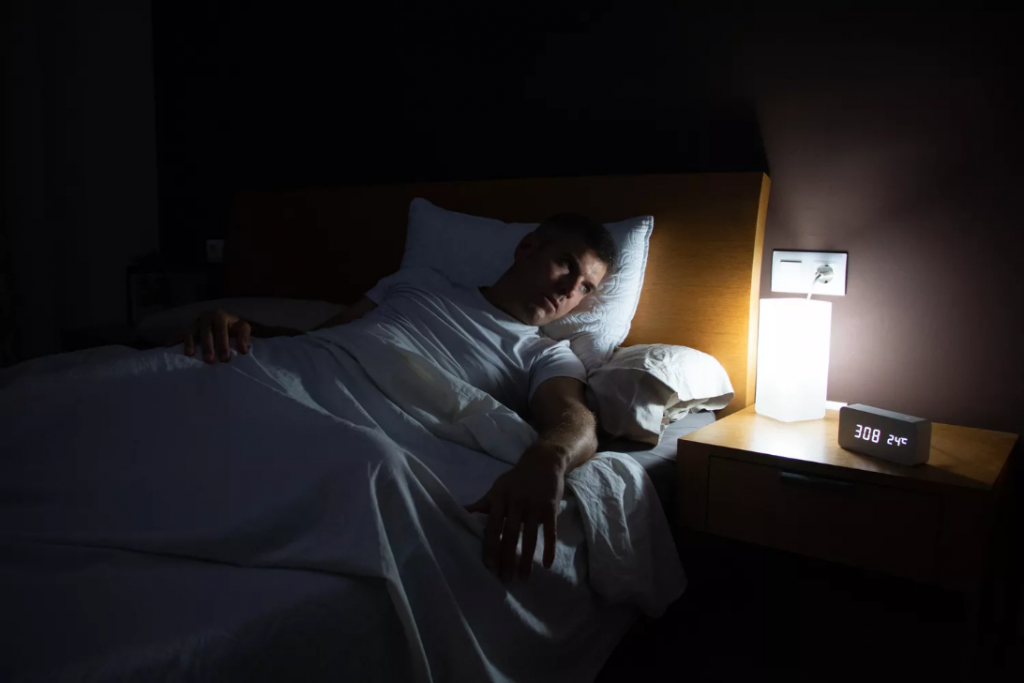You may want to have a nice sleep but are not in the right state of mind to do so from anxiety. In order to do so, you need to quiet your mind and be in a state of peace. Binaural beats can help your brain respond to sound to move you to a deep relaxation which can help you get better sleep.

The slowest brain waves are delta waves. Delta brain waves binaural beats have a frequency between 0.5 Hz and 4 Hz. As you transition into deeper sleep stages, your brain switches from theta waves to delta waves. Dreaming can occur. Listening to delta wave binaural beats can help you sleep.
If you’ve ever woken up feeling very unrested yet were sure you were asleep for 7-8 hours, then you probably didn’t spend enough time in the delta stages of sleep.
Can Binaural Beats Help You Sleep Better?
Preliminary research suggests that delta brain waves binaural beats can help you sleep better. A study using binaural beats at a delta frequency of 3 Hz showed that these beats induced delta activity in the brain. As a result, the use of delta wave binaural beats lengthened stage 3 sleep. Stage 3 sleep is deep sleep and important for feeling refreshed in the morning.
Other small studies indicate the potential of delta wave binaural beats for better sleep. In a study of soccer players listening to binaural beats ranging from 2 Hz to 8 Hz, players reported improved quality of sleep, less sleepiness, and increased ease of waking up. Binaural beats can also help reduce anxiety, which can then lead to improved sleep.

Improving Sleep
Being exposed to delta wave binaural beats can change three hormones that are associated with sleep. One hormone is DHEA which strengthens your immune system and fights disease. DHEA suppresses cortisol which stimulates alertness and provokes stress. Binaural beats help with cortisol production in that this hormone at high levels normally causes insomnia. Melatonin levels tend to rise dramatically in the evening by relaxing your body and mind to fall asleep. Listening to delta wave binaural beats will strengthen the hormones that make you relax and help you fall asleep more easily.
Interesting Facts about Delta Brain Waves
1. Delta Helps Us Access the Subconscious Mind
When Delta wave binaural beats increase our awareness of the physical world decreases. This enables us to access information in our unconscious mind.
This is why when we’re caught in that half-sleep mode we have those trippy dreams where we maintain awareness but are seemingly living in another world. This is why delta waves can assist astral projection and lucid dreaming. We are able to decrease our attachment to the physical world.
2. Babies Spend the Most Time In Delta
Delta is the dominant brainwave rhythm in infants up to one year of age. It makes sense, though, because babies spend so much time asleep – but actually they experience high volume delta when awake!

3. Delta is Considered a Gateway to Spirituality
We spend close to a third of our lifetime asleep, yet we don’t know much about it, particularly the delta state. Science believes that thought processes disappear in this state and conscious awareness is lost.
For this reason, it is believed that within this realm is the gateway to God, to Infinite Intelligence or the Collective Unconscious” mind.
4. Women Produce More Delta Waves Than Men
Scientific research has shown that women have more delta wave activity than men. Interestingly, females among most other species of mammal display a similar tendency. We don’t yet know why!
How Do I Use Binaural Beats?
If you decide to use binaural beats in hopes of improving sleep, there are numerous binaural beat tracks available online. You can also purchase CDs or audio files featuring binaural beats. Oftentimes, these tracks have white noise or other gentle sounds to help you relax. Choose tracks designed for sleep, which are typically beats at theta or delta frequencies.
The length of binaural beat tracks vary. You may need to experiment with multiple listenings to determine how long of a track you need to induce sleepiness.
Are There Any Side Effects to Using Binaural Beats?
Currently, only a few negative side effects of using binaural beats have been reported. Some listeners report irritability or frustration while listening to the beats. To prevent this discomfort, researchers suggest tracks with additional sounds, such as white noise.
Additionally, long-term exposure to sound at 85 decibels or higher can result in hearing loss. Examples of everyday sounds at that level or above are motorcycles, concerts, sporting events, and listening to music at full volume through headphones. As you listen to binaural beats, be sure the volume is not too high.
Sources:
https://www.sleepfoundation.org/noise-and-sleep/binaural-beats